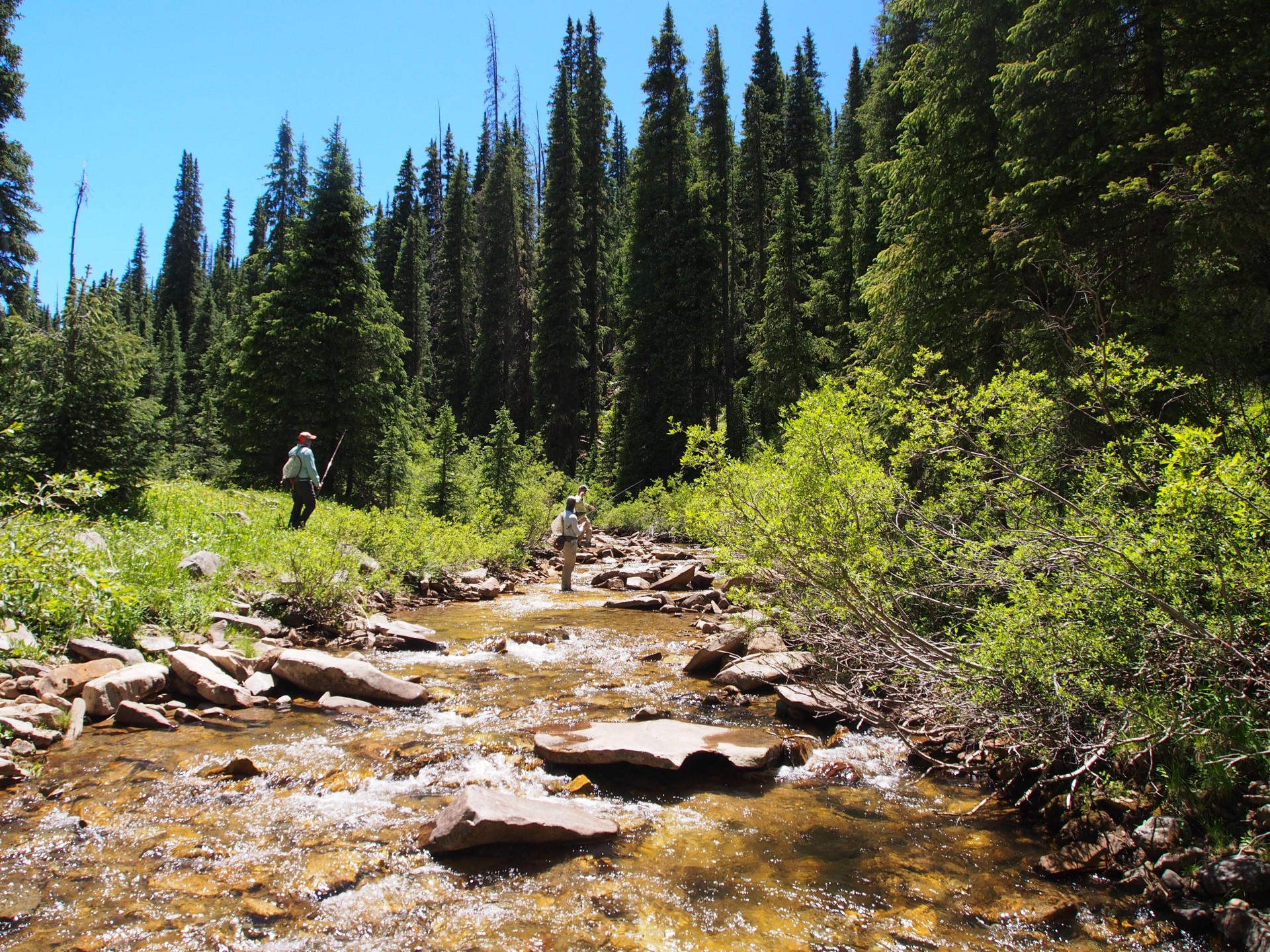Kansas
June 2016
My dad always predicted that Kansas would be one of the more challenging states to find a place to fish during the quest. It was the go-to state when people would ask me about odd places for fly fishing. They would joke, “what in the world are you going to catch in Kansas?” Agreeing with them, I had no idea where I was going to fish or what I would target there. Google doesn’t have a lot to offer when you search “fly fishing Kansas.” I figured that I could find a bass or bluegill somewhere in the plains, and sure enough, fishing never fails to take one to unexpected and amazing places.
Dad and I ended up in Sedan, Kansas, arriving on the ranch of Bill Sproul, an avid plains conservationist and a recipient of the Kansas Leopold Conservation Award. We were introduced through a mutual friend I met on another fishing trip, and Bill was kind to invite us to chase our Kansas fish. I had never been to this area and coming from the long-leaf pine forests of South Georgia, I was astonished by the beauty of the tall grass plains. Though many people regard it as a “fly over state” or only take in what they see from the 424 mile of I-70 that cross from Colorado to Missouri, it has a lot more to offer than corn and oil pumps. Dad and I certainly saw our fair share of each, but also took a much-anticipated detour to see them acclaimed “world’s largest ball of twine” in Cawker City. Further, our fishing journey connected us with an incredible outdoorsman and conservationist who introduced me to an entirely new and incredible ecosystem that he so loves.
We pulled onto the Sproul Ranch, and Bill was seated waiting for us in a plastic lawn chair with a glass of sweet tea, looking out over the plains. We were greeted like old family friends, and he jumped right into sharing about the ranch, his conservation efforts at restoring native grassland species, and the importance of using prescribed fire for plains management. He was the epitome of what I imagined a midwestern rancher to be: perfectly kind, as down to Earth as one can imagine, and tough as nails from years in his profession, but always wearing a gentle smile. You better bet there was an “Eat Beef” sign on the property. Bill openly admitted that he didn’t know the first thing about fly fishing but was happy to show us to one of his farm ponds and watch from the bank. I enjoyed explaining to him some of the basics as well as hearing stories about the ranch, his cattle, and the grasslands as we got geared up to fish. Dad and I went out in a classic John boat, the kind that so many of us first learned how to fish from: an aluminum craft lying face down next to the pond, whose original color no one really remembers. It felt like being back home. We flipped it upright, slid it into the corner of the pond, and started paddling around the water’s edge.
One of the things that I have come to learn over the course of my journey is that the weatherman is often not as accurate as I’d like him to be. Fortunately, in this case, it was for the better. Expecting big thunderstorms throughout the day, we got out early, but, to our relief, the weather cleared up pretty quickly. It was an excellent day for fishing on top with deer hair frogs and small poppers. Being the first flies I ever used, I always love getting to fish with this tactic. The bluegills rush out from the bank and slam the neon orange bug on the surface, often trying to gulp down flies that are a third the size of their body with a startling strike. One particular fish kept smacking at it over and over again, but never could get a hold of the fly. It looked like a little bubble popping when he hit the surface. I’m always amazed by the determination of some of those small, ambitious fish.
I was able to catch some largemouth as well. There was some nice structure for the bass to hang around, such as lily pads and broken logs. I noticed a big snag near one of the corners of the pond, so I tossed the fly a few feet off to one side in hopes that a fish would be drawn out to strike. As soon as my frog pattern hit the water, much like a living one jumping from the bank, a fish pushed a big wake from about 10 feet away and swiped right past the fly—it had been waiting to ambush something, and I think it came in with a little too much aggression. I let the fly sit, made a pop, and the fish came back around and slammed it! That got a load of excitement out of dad and me. Warm water bass and bluegill are often overlooked when it comes to fly fishing but are such a blast to target. Pursuing any sort of fish on the fly–in any location–can always be a big time, even if it’s not a blue-ribbon stream or renowned destination. There are many states that have lakes and rivers that hold warm water panfish and bass species. Though we were on a private pond, I am certain we would have found public access points nearby had we taken the time to look for them and could have had a very similar fishing experience. Particularly for those getting into fly fishing, seeking out opportunities to fish for these species can prove a great introduction to the sport. It’s hard to beat the feeling of watching a big bass crush a popper on top…it never gets old.



